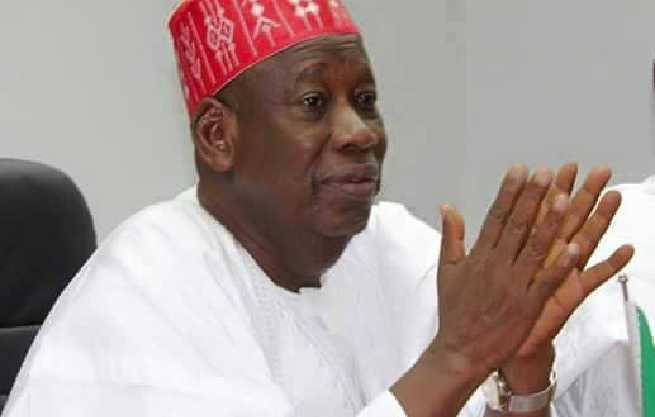
The Kano State governor, Abdullahi Ganduje, on Thursday observed that there are about three million out of school children roaming the streets of the state, as Almajiri – pupils of Quranic schools converted to beggars.
He noted, however, that most of such kids were found out to be from neighbouring states and some countries in West Africa.
“What we discovered from our survey is that many of these Almajiris come from the Niger Republic, some from Chad, Northern Cameroon and some from other states of the north-west”, he pointed out.
Speaking during the Kaduna state Economic and Investment Summit, Mr. Ganduje said a recent survey carried out in the state established the number of the Almajiri, saying this has now become a social and economic problem.
“So, if we can come together and have a common synergy to introduce a common legislation, preventing the movement of school age children from one place to another, I think the states will find it very easy to address the problem of Almajiri syndrome”, he emphasised.
Stressing that the Almajiri syndrome is one of the serious problems worrying the North-west geopolitical zone, he said it was imperative for the seven states of the sub-region to identify the economic advantages they can use to move forward and tackle their common social problems.
He said: “These seven states should try, identify the economic advantages that we can lay our hands on as to move this region forward. And what are the social problems that we are having?
“This is the first time, since the inception of this democracy in 1999, where the seven governors (of the north-west zone) decided to come together to form a forum. We even went to the extent of employing a consultant who is giving us the green light on various issues on economic development.
“Let me start with the position of the North-west in Nigeria. We are the most populous geopolitical zone, constituting 25 per cent of the population of Nigeria. With regards to land mass, we have 23 per cent of the land mass in Nigeria.
What we require now is the political will to come together and be fully integrated – socio-economic integration beyond paper integration, an integration that will bring development in terms of institutions and in terms of programmes that will improve the quality of lives of our people,” Mr. Ganduje asserted.
“It will be very important to have an integration commission which looks into the development capacity of our institutions, because whatever we want to do, if our institutions are not developed, then whatever we do may not be actualized,” he said.
He highlighted the need to have a data bank that would contain demographic and economic facts from all the Northern states, for ease of planning and investment.
According to him, “another issue is that we are individually conducting our educational programmes, if we come together to see how we can have different programmes in our university curriculum, it will help us specialize and we can even build universities that will specialise in the various programmes, thereby saving energy and resources for the development of our region”.
“The potentials of the north-west are very obvious. The north-west has the highest water density in the whole of West Africa.
The amount of water is such that they can feed the whole of West Africa and this is something that needs to be tapped,” the governor said







